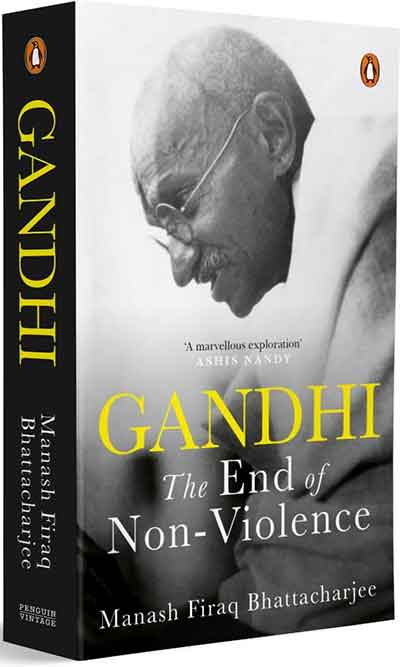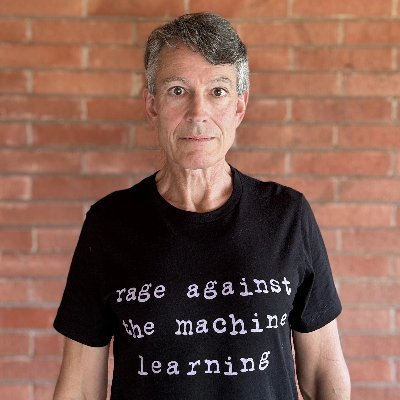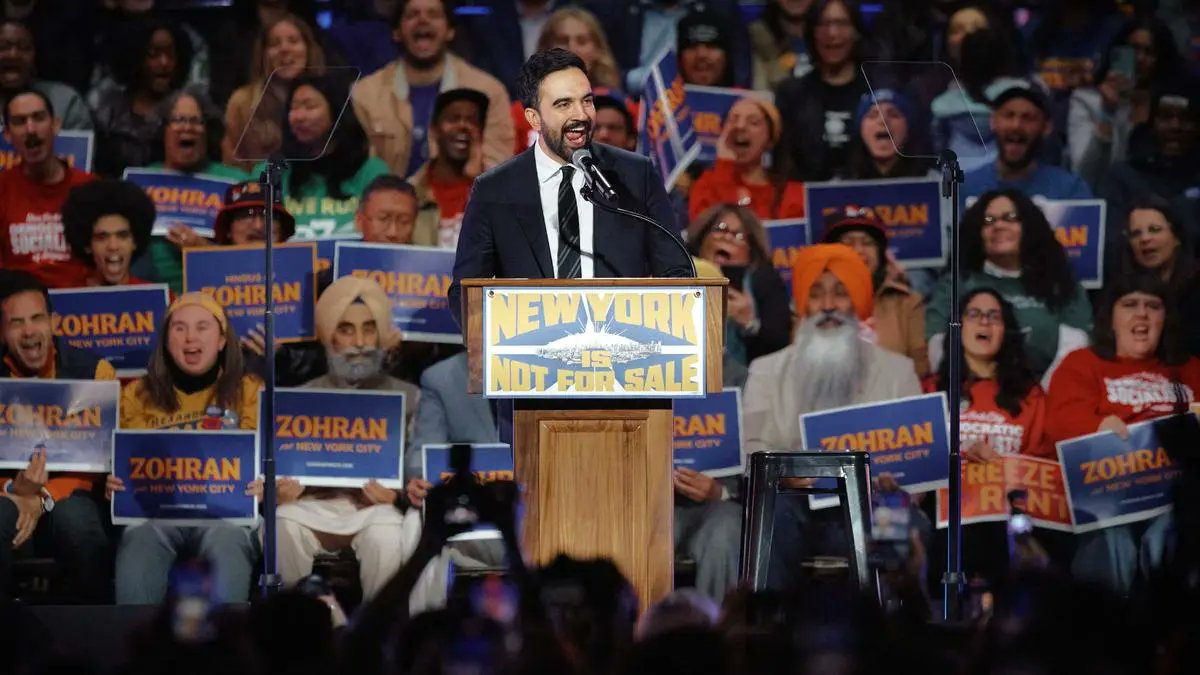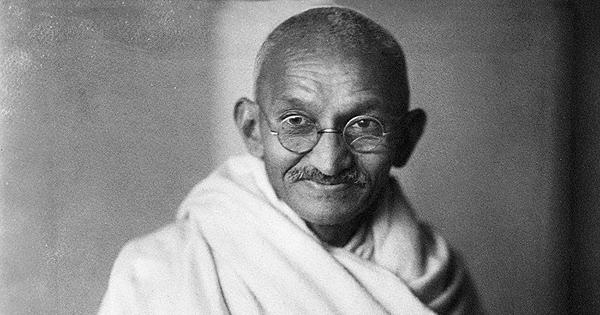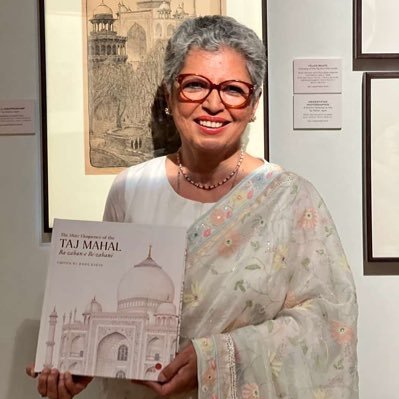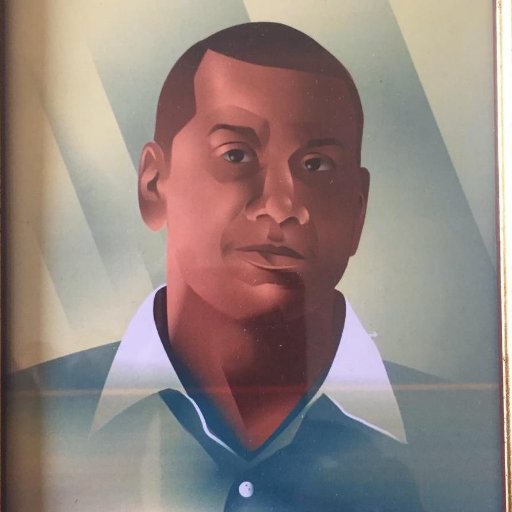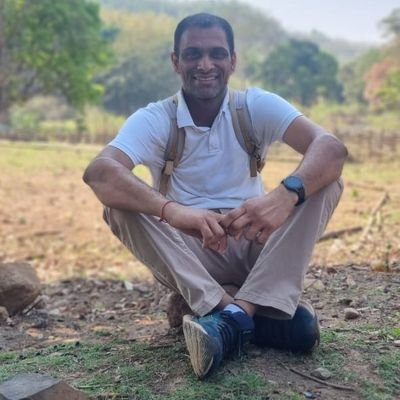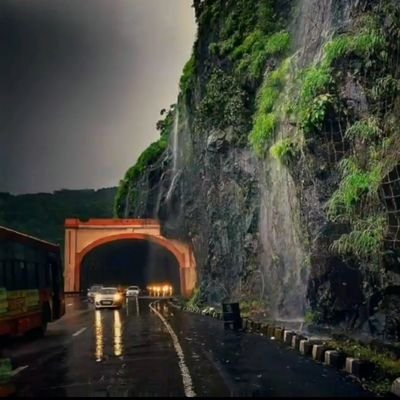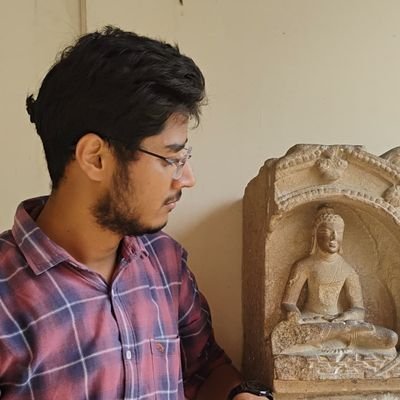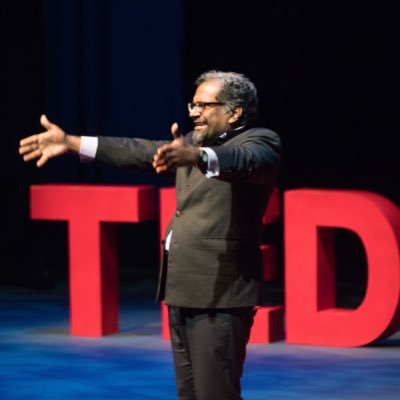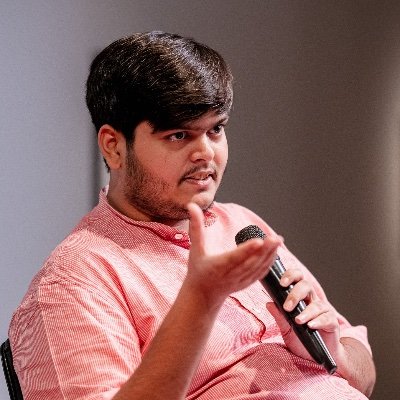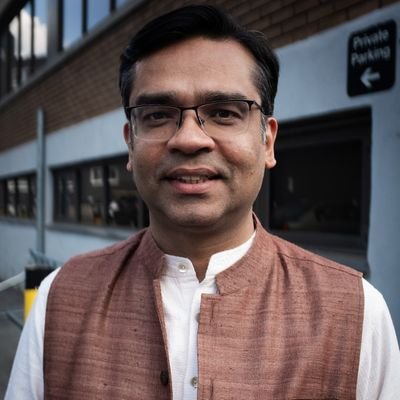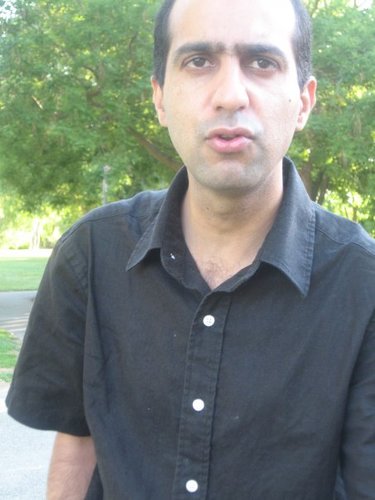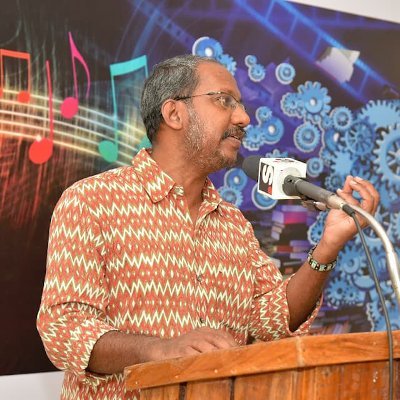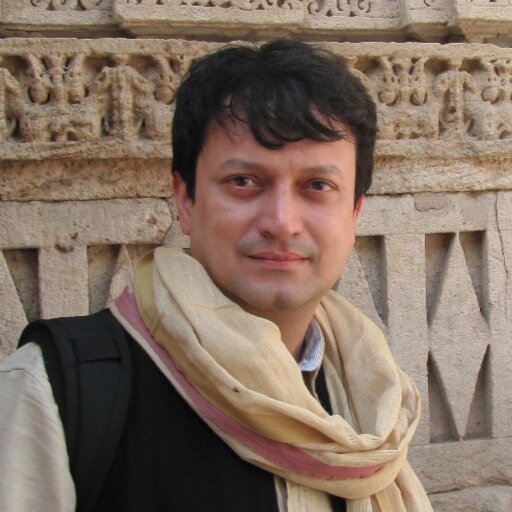
Manash Firaq
@manasharya
Writer | Political thinker | Refugee | Cook
你可能会喜欢
If you want to learn the real, poignant, difficult and inspiring story of Gandhi's contribution to restore hope by his epic march through the villages of Noakhali, and his efforts to bring a semblance of peace in Calcutta in 1947, read my book.
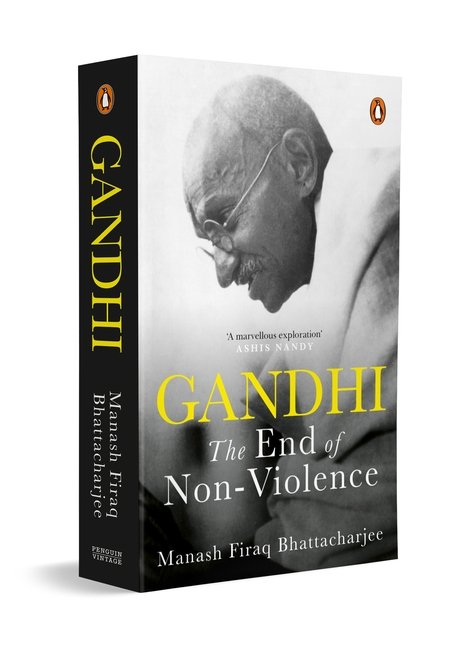
Those who don't have spotify can listen to the podcast interview on my book on Gandhi on youtube. Do share with interested listeners. m.youtube.com/watch?v=uBeXyt…
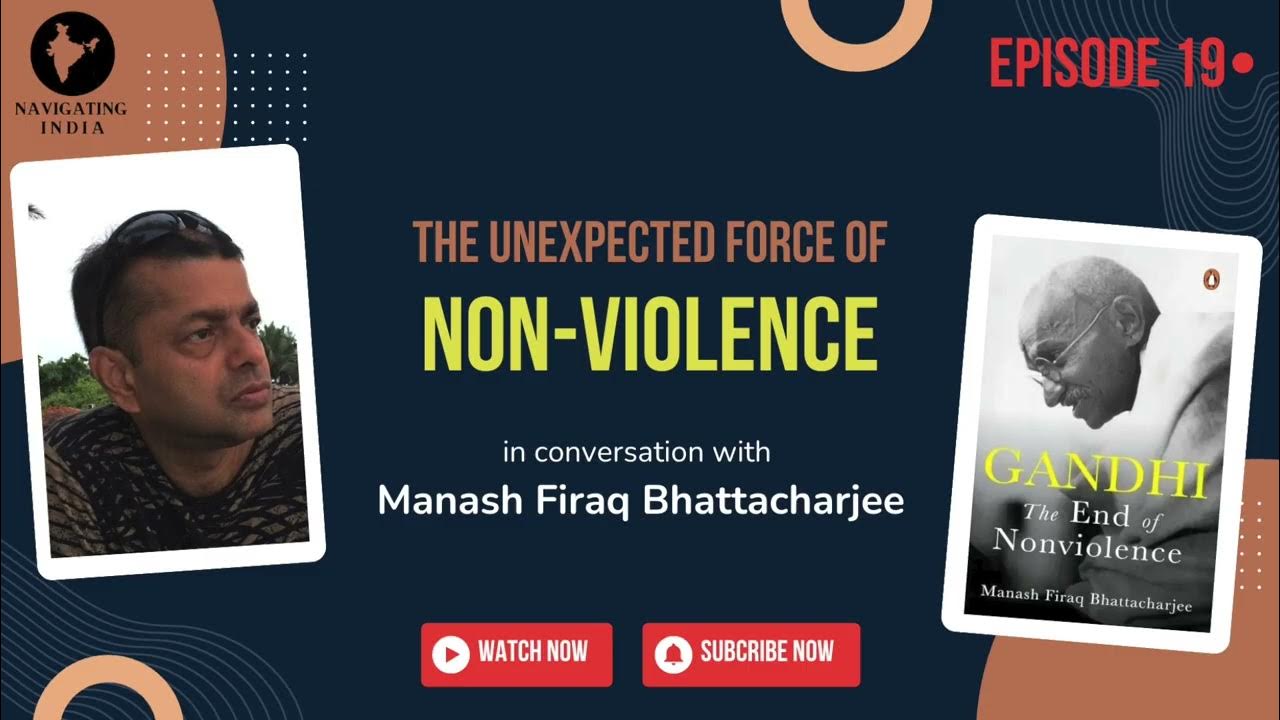
youtube.com
YouTube
The Unexpected Force of Non-violence: In conversation with Manash...
(1/n) Episode 19: The Unexpected Force of Non-violence: In conversation with Manash Firaq Bhattacharjee (@manasharya) Why did a nation that had fought through non-violence descend into violence? What is the psychology behind communal violence? Spotify:open.spotify.com/episode/5TWI26…
My first podcast interview for 'Gandhi: The End of Nonviolence' with Rishvanth, who is a scholar of social & public policy from LSE. It was a stimulating, marathon session. open.spotify.com/episode/5TWI26…
The Malayalam review of my book on Gandhi by writer and environmentalist, K. Sahadevan:
countercurrents.org/2025/11/nonvio… originally, I wrote this in Malayalam.
Writer and environmentalist K. Sahadevan's incisive thoughts on 'Gandhi: The End of Nonviolence' for @Countercurrents. "Bhattacharjee’s work provokes intellectual engagement through its dispassionate yet empathetic dissection of India’s most tragic epoch." countercurrents.org/2025/11/nonvio…
_Did the Greeks Believe in Their Myths? An Essay on the Constitutive Imagination_ (By Paul Veyne) "Believe" is not a natural category. It's an invention of rationalist metaphysics. It bears scant relationship with what anyone actually does.
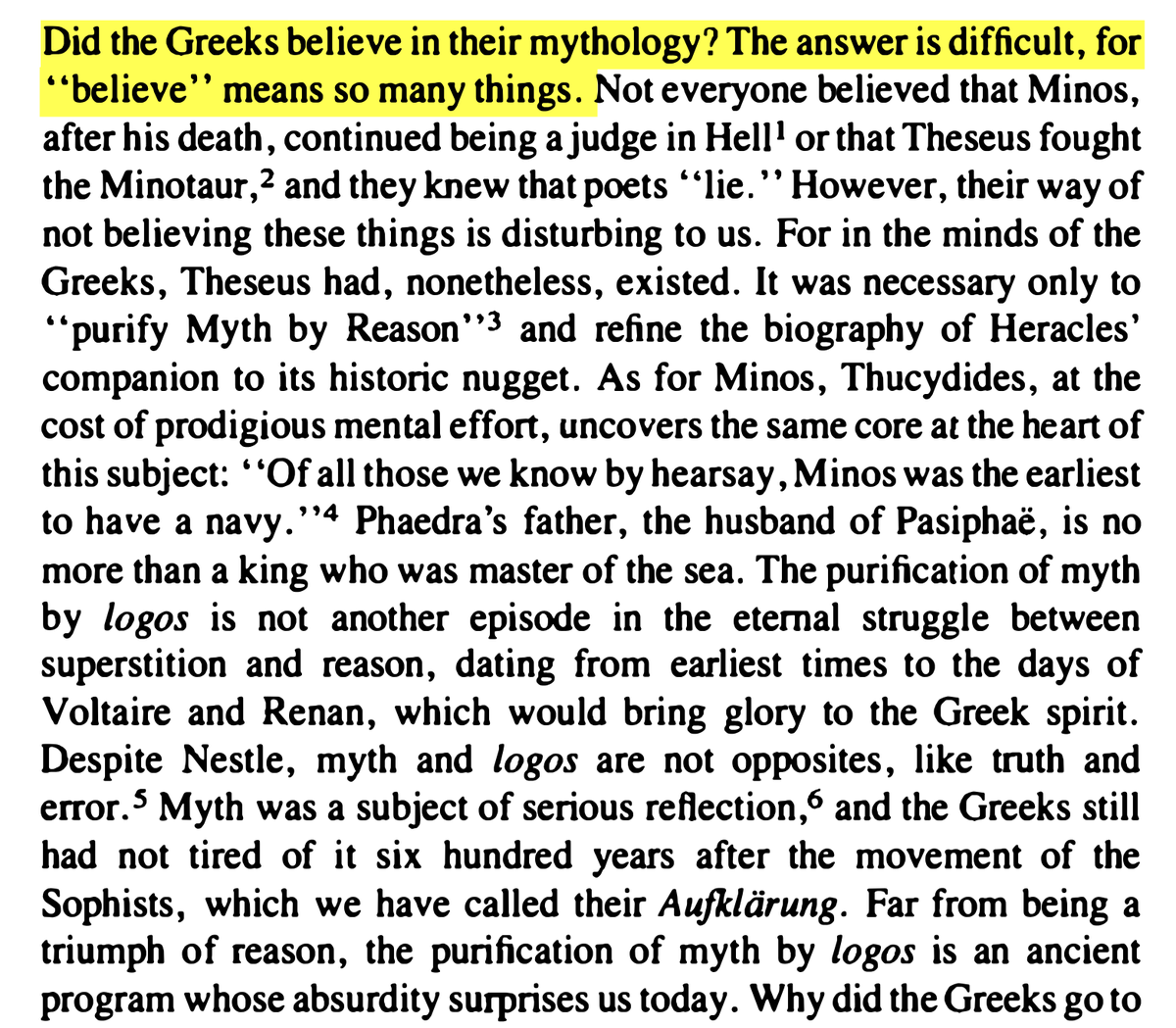
What connects #Nehru to #Mamdani is their commitment to democratic socialism, writes Manash Firaq Bhattacharjee @manasharya frontline.thehindu.com/news/zohran-ma…
My piece on Zohran Mamdani's victory speech and the return of democratic socialism, where he evoked Nehru's 'tryst with destiny' speech in August 1947. frontline.thehindu.com/news/zohran-ma…
My essay RITWIK'S TREES in UNMECHANICAL, an anthology of writing on Ritwik Ghatak on his birth centenary. Edited by @shamyad, the book is now available to order and buy online and in bookstores.
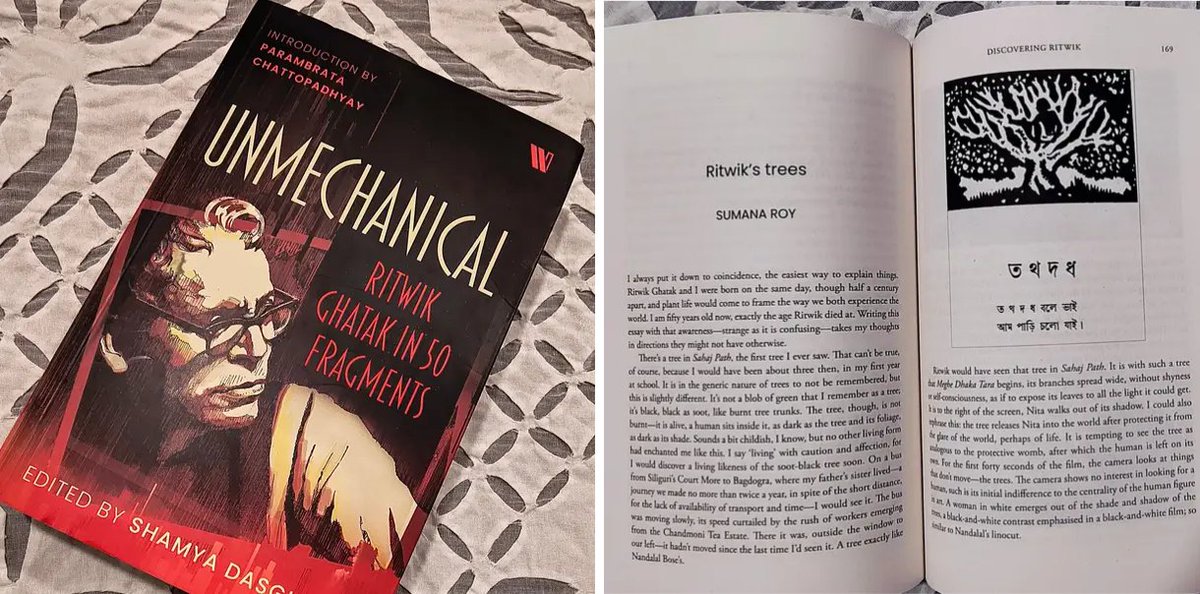
Historian at UCLA Vinay Lal passionately champions my book: "This book is an invitation really to enter into the question of violence and nonviolence both in the minutiae, at the micro level, and at the largest philosophical, abstract level." youtube.com/watch?v=XlXfVX… @premanka
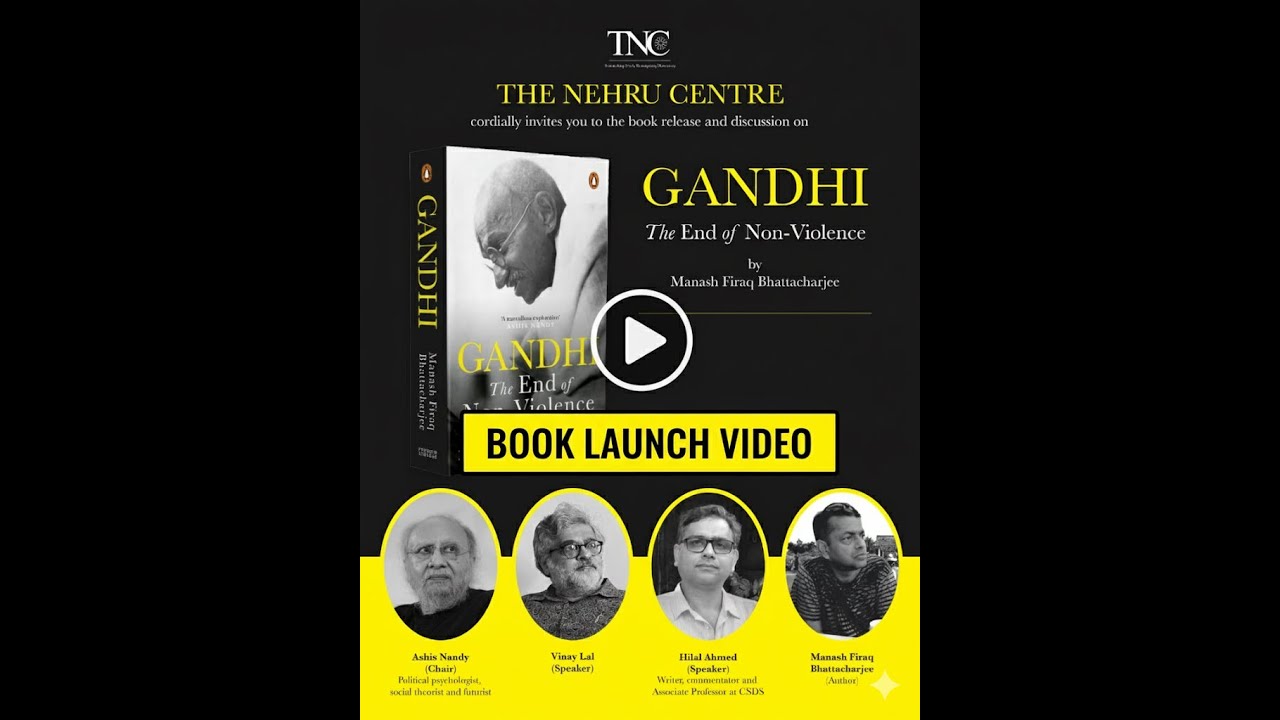
youtube.com
YouTube
Gandhi: The End of Non-violence by Manash Firaq Bhattacharjee | Book...
"Gandhi: The End of Non-Violence" by Manash Firaq Bhattacharjee reviewed in Scroll scroll.in/article/108702…
Historian Mohammad Sajjad reviews my book: "Chapter after chapter, Bhattacharjee brings out moral-philosophical commentaries to interpret the violence, the remorse (and lack of it). Such riveting narrations keep the readers fully absorbed in the book." scroll.in/article/108702…
"@manasharya argues, Gandhi was into the politics of listening, whereas in modern politics, “leaders and ideologues meet people to preach and lecture, not to listen”. And that he had the moral guts to say something harsh even to a victim." scroll.in/article/108702… Mohammad…
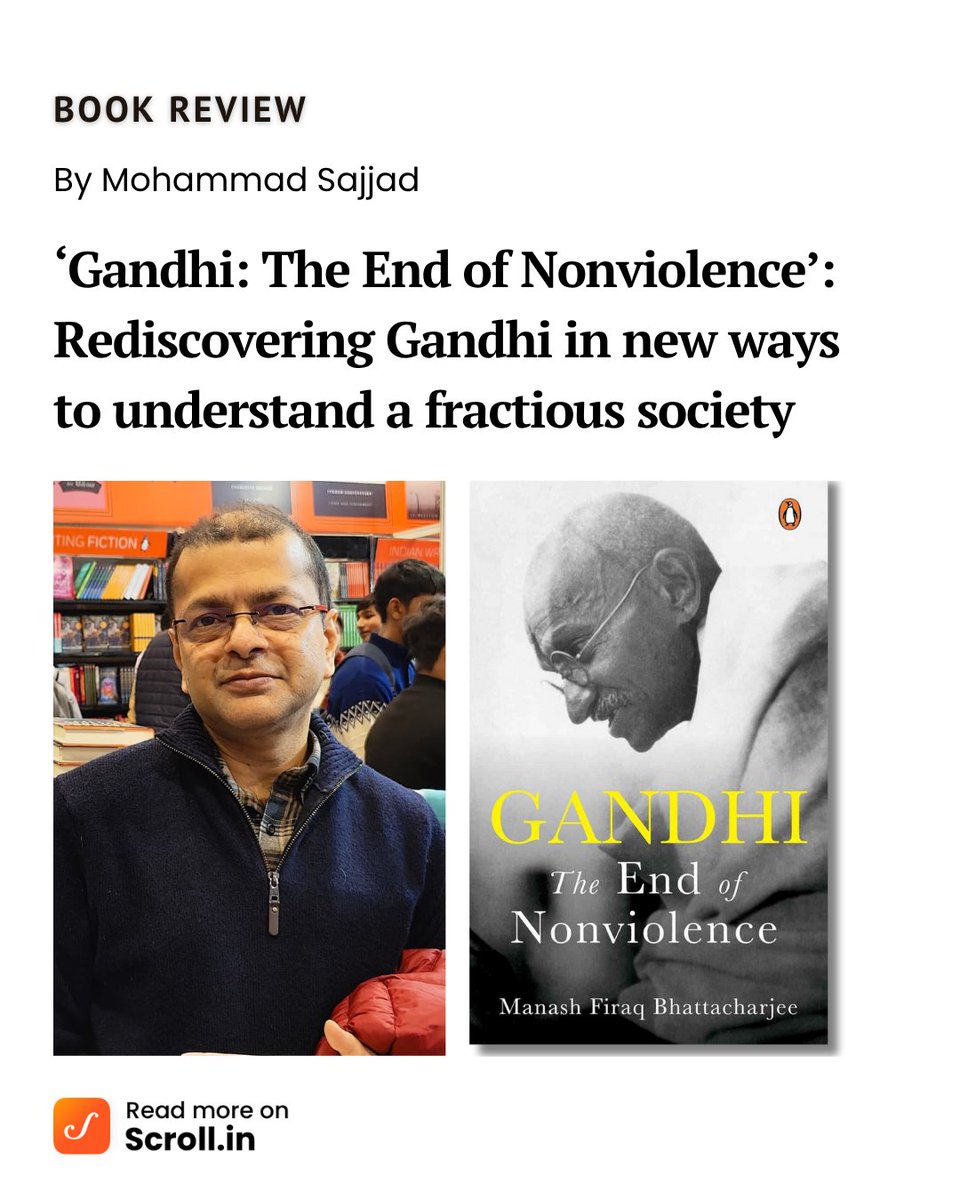
Thank you, Mohammad, moved and humbled. Look forward to conversations in Delhi.
It was pleasure reading your wonderful book. Will re-read to enjoy once more. It is laced with insights.
Thank you, Mohammad Sajjad (Professor of Modern Indian History, AMU), for this wonderful review: “[This] book helps us rediscover Gandhi... Not many rigorous academic history writings can claim to have such beautiful prose.” scroll.in/article/108702… @sajjadhist @premanka
On the occasion of Gandhi Jayanti, TNC is pleased to present the video release of a book launch: Gandhi: The End of Non-Violence by @manasharya Grateful to the speakers @Ahmed1Hilal #VinayLal Watch the video on our Channel! youtu.be/XlXfVXq6dLo?si…

youtube.com
YouTube
Gandhi: The End of Non-violence by Manash Firaq Bhattacharjee | Book...
This Durga Puja learn what Gandhi did for Bengal in 1946-47, and recover from the demonising myths around him. For instance, the Hindu correspondent meeting Gandhi on 20 Nov 1946 “in the evening in his new abode in Srirampur, sitting calmly in a half-burnt house amidst ruins”.
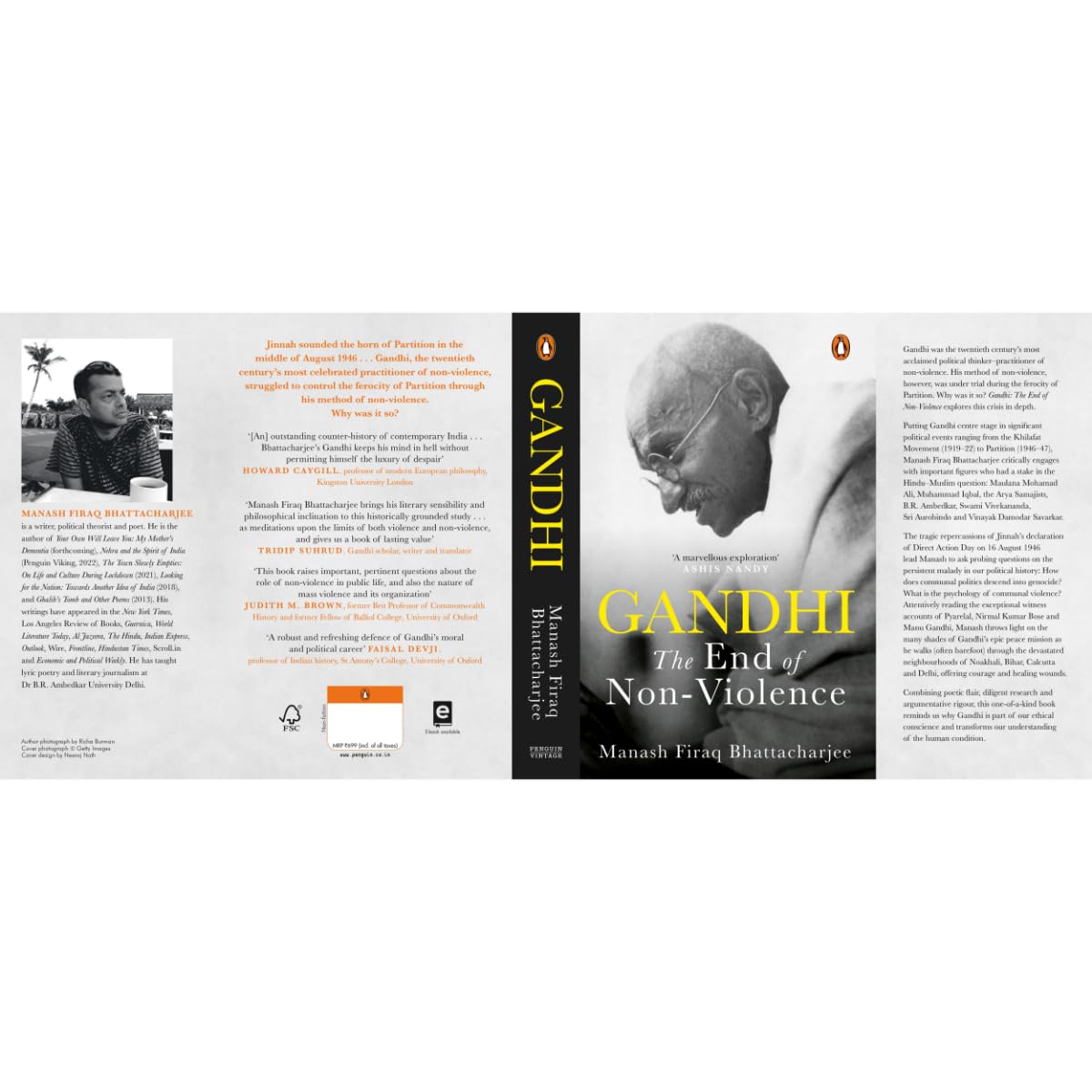
Gangeya Mukherji reviews my book in the current issue of Biblio: “In his timely, and many ways, prescient book, Manash Firaq Bhattacharjee presents an insightful, analytical, yet lucid and compelling narrative of the tragic and crowning year of Gandhi’s life and public career.”
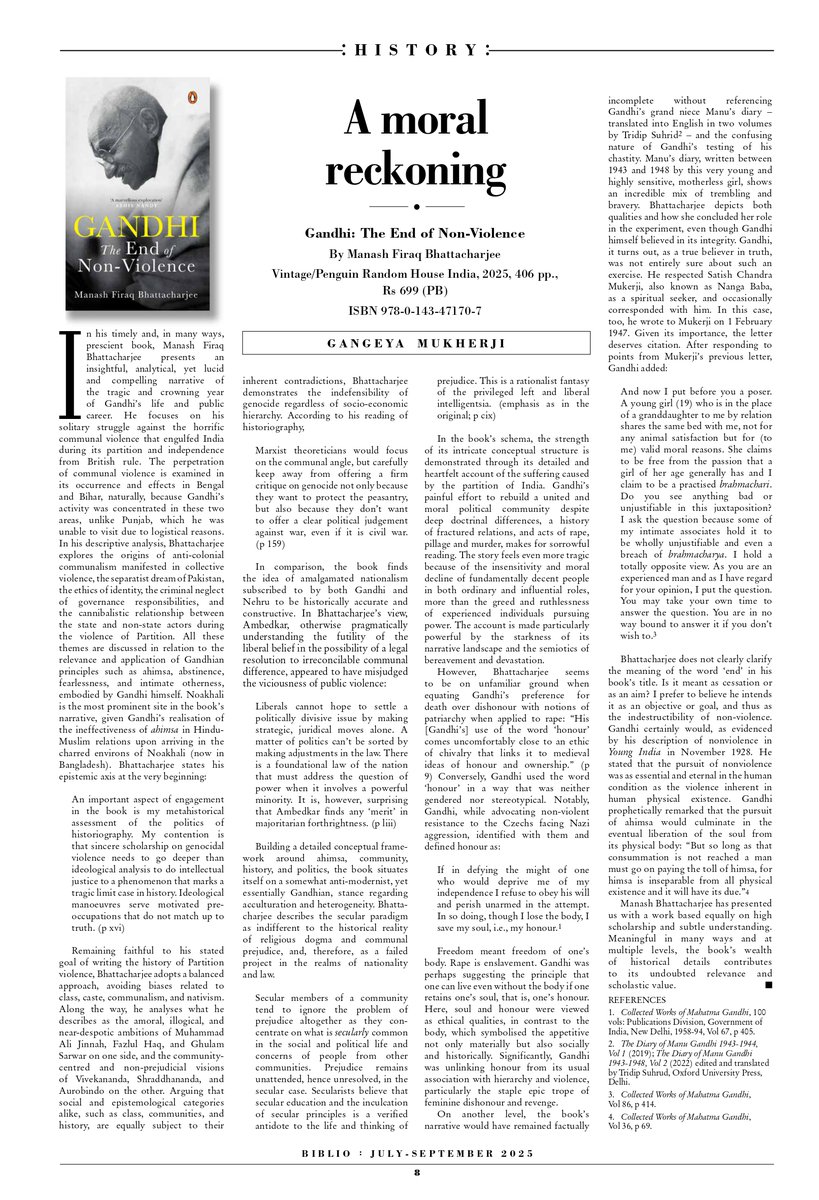
United States 趋势
- 1. Josh Allen 39.8K posts
- 2. Texans 59.9K posts
- 3. Bills 149K posts
- 4. Joe Brady 5,301 posts
- 5. #MissUniverse 466K posts
- 6. #MissUniverse 466K posts
- 7. Anderson 27.8K posts
- 8. #StrayKids_DO_IT_OutNow 53.4K posts
- 9. McDermott 4,715 posts
- 10. Technotainment 19.5K posts
- 11. Troy 12.2K posts
- 12. joon 12.6K posts
- 13. #Ashes2025 24K posts
- 14. Beane 2,881 posts
- 15. #criticalrolespoilers 2,365 posts
- 16. GM CT 23.2K posts
- 17. Al Michaels N/A
- 18. Maxey 14.7K posts
- 19. Fátima 201K posts
- 20. FINAL DRAFT FINAL LOVE 1.28M posts
你可能会喜欢
-
 South Asia Speaks
South Asia Speaks
@AsiaSpeaks -
 Chinki Sinha
Chinki Sinha
@chinkis -
 Abhishek Choudhary
Abhishek Choudhary
@chacchachoudhry -
 Taylor C. Sherman
Taylor C. Sherman
@TaylorCSherman -
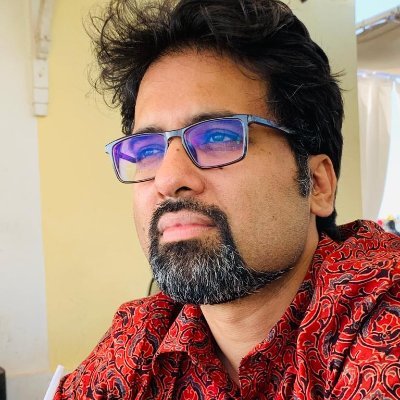 Kanishka Gupta
Kanishka Gupta
@kan_writersside -
 Arun Kumar
Arun Kumar
@arunk_patel -
 Seagull Books سیگل
Seagull Books سیگل
@seagullbooks -
 Himal Southasian
Himal Southasian
@Himalistan -
 Akshaya Mukul
Akshaya Mukul
@Akshayamukul -
 Shivani Kapoor
Shivani Kapoor
@shii_vani -
 K. Srilata
K. Srilata
@SrilataKrishnan -
 Mehr Farooqi
Mehr Farooqi
@FarooqiMehr -
 Sumana Roy
Sumana Roy
@SumanaSiliguri -
 Elizabeth Kuruvilla
Elizabeth Kuruvilla
@eliofkottayam -
 Arunava Sinha
Arunava Sinha
@arunava
Something went wrong.
Something went wrong.


















